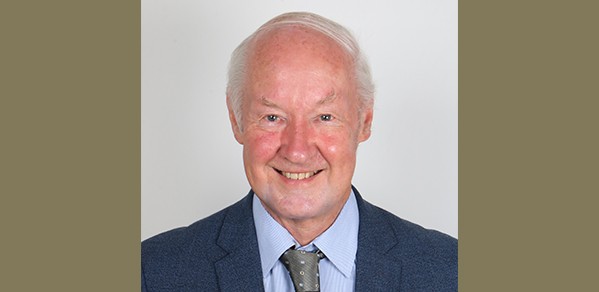
Emeritus Professor John Robertson’s outstanding contributions to nanotechnology have been recognised with the 2023 IEEE Cledo Brunetti Award.
While operating at the forefront of the field, I calculated many of the key properties of Hafnium dioxide that led to it replacing Silicon dioxide as the gate insulator in modern Field Effect Transistors (FETs).
Professor John Robertson
Professor Robertson is an expert in electronic materials and has contributed to the production and development of electronic devices. He has undertaken seminal work to develop industrially valuable electronic materials such as HfO2 (Hafnium dioxide). His prediction of the conduction band offset of HfO2 allowed it to replace SiO2 (Silicon dioxide) as the gate oxide in complementary metal oxide semiconductor (CMOS) transistors, and so to continue CMOS scaling. His further work on its defects and interfaces with metals allowed its successful implementation.
The IEEE Cledo Brunetti Award, established in 1975, is one of a number of Technical Field Awards presented by the IEEE. It recognises outstanding contributions to nanotechnology and technologies for microsystem miniaturisation and is presented to Professor Robertson “for theoretical contributions to the integration of high-k oxides on semiconductors”. The award consists of a bronze medal, certificate and cash honorarium.
Commenting on his award, Professor Robertson said: “I am delighted to receive the 2023 IEEE Cledo Brunetti Award in recognition of my achievements and expertise in electronic materials. While operating at the forefront of the field, I calculated many of the key properties of HfO2 that led to it replacing SiO2 as the gate insulator in modern Field Effect Transistors (FETs). This enabled the continuation of 'Moore's Law' scaling of electronic devices.”
This award shows that UK scientists can contribute to the hardware of semiconductor devices, not just the software, for which it is perhaps better known.
About Professor John Robertson FRS FREng
Professor Robertson graduated from Cambridge in Physics in 1971 and with a PhD in 1975. He then worked for the Central Electricity Generating Board on corrosion in nuclear power electricity generation and transmission economics from 1975 to 1994, before joining the Department of Engineering at Cambridge in 1994. His knowledge of oxides from corrosion was useful in enabling HfO2 to be comprehensively understood.

